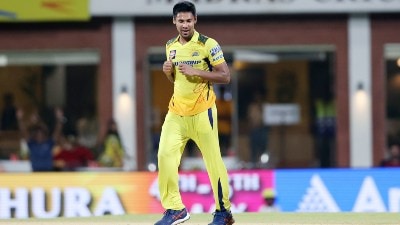Namaste America
The striking feature of Atal Bihari Vajpayee's address to the US Congress was the trouble he went to to speak a language Americans underst...

The striking feature of Atal Bihari Vajpayee8217;s address to the US Congress was the trouble he went to to speak a language Americans understand. He laid out before them a broad swathe of common Indian and American values and interests. Both value democracy and individual liberty, tolerance and enterprise, both have an interest in Asian stability. Some of what he said was patently more rhetorical than accurate but it is broadly true that India and America have much in common and have no serious conflicts of interest. So Vajpayee did well to woo America by listing all the ways in which the two countries think alike and the similarities in their aspirations. There is considerable scope for cooperative effort and a deeper partnership. The prime minister may have been somewhat ambitious in claiming that India and the US were shaping the information age. But India is hugely important in the digital world and is likely to assume an even bigger role in the years ahead; if nothing else, Bill Gates8217; strategicpartnerships with leading Indian infotech companies testifies to this.
Outside infotech, an India-US partnership would be mutually beneficial in the areas of Asian security, in combating terrorism, in advancing democracy around the world and even in finding new ways of fighting poverty and hunger. Vajpayee was right to emphasise all this. But were they listening? Several things suggest this Congress would be inclined on the whole to agree with what the prime minister said. The India caucus8217;, an informal group of legislators who raise issues of concern to India in the Congress, has grown in numbers. The skills and achievements of Indian Americans, and their contributions to that country, have helped give India a higher profile in the US and, significantly, a more favourable image than it had in the past. Shrewdly, Vajpayee touched on that, saying they were a metaphor for what India and America can do together.
India used to be seen almost exclusively in terms of poverty, disease and disaster. Thanks largely to India8217;s economic reform policies and opening up to the world, other positive features are being recognised. Consequently, lobbyists for India on Capitol Hill do get heard. The Congress passed a resolution, supported by Democrats and Republicans, just prior to Vajpayee8217;s address, urging the Clinton Administration to lift all remaining sanctions on India in the interests of strengthening economic ties and furthering bilateral trade. Bill Clinton is not going to reverse course during his last few weeks in office and official spokespersons have made this clear. What a new president and new Congress after the elections will do remains to be seen. But it is indisputable, as Vajpayee said, that India is indispensable to a prosperous, democratic and stable Asian continent. Both countries have a common interest in strengthening peace and security in the region, and will need to cooperate in many ways to bring aboutAsian stability in the years ahead. Sooner rather than later, therefore, Washington is going to have to tackle the prickly issue of sanctions which, despite the efforts of both capitals, gets in the way of the kind of close relationship that is essential for furthering mutual interests.
Photos
- 01
- 02
- 03
- 04
- 05































